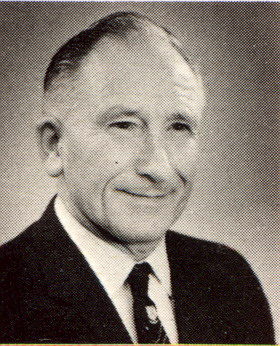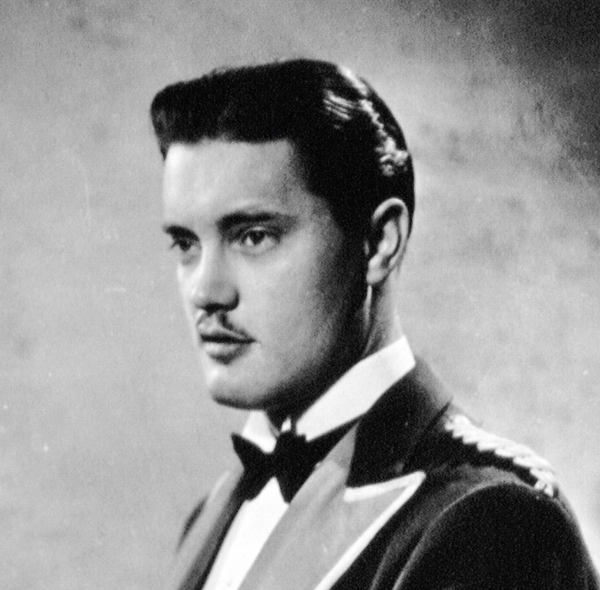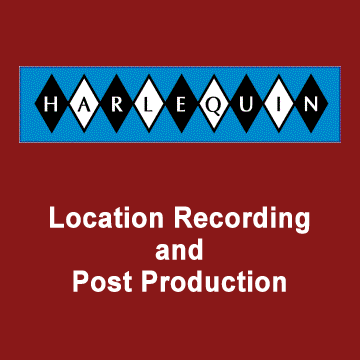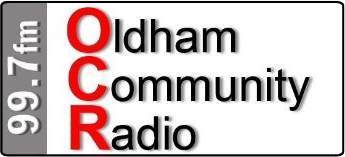The first time I saw him perform live as a soloist was on the 14th of October 1967 at the Royal Albert Hall, accompanied by his wife Janne Edwards-Garside, ARCM on the piano.
Over the years I have often thought, it's a long way from the Bailiff Bridge bandroom of Clifton and Lightcliffe to the bright lights of the Royal Albert Hall. A story that has been left untold far too long - he is one of Brighouse's few famous sons.
Derek Malcolm Garside was born on the 9th of March 1930 the, youngest son of Percy and Florence Garside, a staunchly religious family who were regulars at Park Chapel in Bethel Street, where in later years he was to delight audiences with his cornet playing.
As a young boy Derek would spend many hours of his early childhood in and around the family home in Carr Street, a small quite street of both terrace and semi-detached houses on the outskirts of the town centre.
The Garside family had a manufacturing confectioner’s shop in 1912. Local records show the business was run by his grandfather, Fred Garside, and was a thriving concern.

In later years this business diversified surprisingly into the travel business by offering a coach service, his father Percy ran this aspect of the family business. Many a local chapel such as the former Waring Green Congregational Chapel would book Percy's coach for their annual outing to either the east or west coast or the Yorkshire Dales. By the time Derek was born his grandfather had died and both businesses had been sold.
His formative years were spent firstly at St Andrew's Infant School, where his school life began on the 13th of May 1935. Then, along with the rest of his classmates, he left and made his way up to the nearby 'big school', St Andrew's Junior School, on the 30th of July 1937. In 1941 he walked out of the school gates at his junior school for the last time, joining his older brother Landon at Hipperholme Grammar School.

Having gained his school certificate in 1946 he then left the grammar school and took his father's advice by taking further education classes at Stead's Commercial College at the bottom of High Street, Brighouse, to learn book keeping, typing, shorthand and general office skills. This was until at least he could decide what and where his future job prospects were.
Even now, at the age of 16, his heart was not really in his lessons at Stead's but in playing his cornet. However, within twelve months of starting at Stead's, an opportunity presented itself, which at the time must have seemed a dream come true. Unknown to him, it was to be the key to the door that would open up opportunities over the next 25 years that would ultimately make him a legend within the brass band movement.
His ambition of being able to combine both his cornet playing with a job came to fruition with the offer to join the CWS. (Manchester) Band and being offered a job with the company at their Manchester offices as well.
It was just before he went to Hipperholme Grammar School that the family had a house built in Slead Avenue which they called 'Sunningdale', a house which at the time would have been appropriate for Percy Garside, a successful professional singer and his young family.
Music, and particularly singing, would have been familiar sounds in the Garside household, with his father Percy being a noted baritone singer and performer in many local amateur productions in his younger days.
His life time in music came to an end on the 1st of April 1964, when he died aged 68 years and following a short service at Bethel Methodist Chapel he was interred at Brighouse Cemetery.
His mother Florence or 'Flo' as many of her good friends were allowed to call her was herself a respected local pianist. She died in 1974 and was interred in the family grave at Brighouse Cemetery.
The Garside family was a musical family, with an uncle who played the cello, an aunt who played the violin, both Percy and Florence were pianists, and along with Percy's singing his brother Landon was also being taught the piano.
It was not long after Derek's ninth birthday that his father asked him what he wanted to start and learn to play. This question was asked as though it was expected that he would play some kind of instrument, just as the rest of the family did. Even today, Derek still cannot recall why he gave the answer he did and was something he probably said at the time on the spur of the moment without even thinking, 'a trumpet'.
A couple of weeks later he arrived home from school to be greeted by his father, 'There's a case in that corner for you, go and have a look at it'. It wasn't the trumpet he'd asked for but a cornet, something he'd never seen before... ' and by the way you start having lessons next Friday night at Mr Roberts house in Castle Avenue'.
In later years Derek found out that it was in fact his father's best friend Arthur Thornton, who had arranged with the Brighouse & Rastrick Band, to loan him the instrument and had also arranged his first cornet lessons as well.
This was Derek's baptism into the world of music making, shortly after his ninth birthday. His first tentative steps in trying to play a cornet were at a house in Castle Avenue, Rastrick the home of a Fred J. Roberts where he went for a weekly cornet lesson. His teacher was no slouch when it came to playing a cornet either because at that time he was the principal cornet player of Brighouse and Rastrick.

In 1947 he was offered the position of Bandmaster and advisor at the re-organised CWS. (Manchester) Band, working alongside their newly appointed professional conductor Eric Ball.
Under the tutelage of Fred Roberts at the end of 1941 or possibly early 1942 young Derek had progressed enough to join Clifton and Lightcliffe Band. On the occasions his father was away working in Blackpool, family friend Arthur Thornton would call round from his home in Laverock Lane to ensure young Derek was practising whilst his father was away, and particularly before he went to his Friday evening lesson with Fred Roberts.
In 1942 Derek entered his first competition at Shipley near Bradford but didn't win anything on that day. A prize wasn't far off though and on the 30th of October 1943, he collected a third prize at a competition in Heckmondwike.
A sign of things to come was non-more apparent than at a slow melody he entered at Bradford on the 27th of November 1943. Where, when he not only won first prize in the under 14-year-olds Junior Section and again in the 14 to 19 years Intermediate Section, but he also won the first prize in the Open Age Section as well.
Towards the end of 1943 he re-joined his tutor Fred Roberts, only this time as a player in the cornet section of Brighouse & Rastrick.
One of his first major successes with Brighouse and Rastrick came in 1946, a few months after leaving school, when he was the band's Repiano player and Eric Ball was the band's professional conductor, and they won the premier title at the National Brass Band Championships Finals in London. The test piece on that occasion was Henry Geehl's 'Oliver Cromwell' which had been first heard at the 1923 contest
After Brighouse and Rastrick took the title Derek was promoted on to the Solo Cornet bench playing third man down to Fred Roberts.

CWS (Manchester) Band - Derek Garside is on the back row third from the left.
It wasn't long after this that his mentor Fred Roberts left to join the re-organised CWS. (Manchester) Band.
In December 1947, at the age of seventeen, Derek was invited to be the principal cornet for the CWS (Manchester) Band, under the direction of Bandmaster Fred Roberts. Along with every other member of the band he too was offered employment with CWS (he was a full-time employee until he left in 1969) and in Derek's case with the CWS. Accounts Department.
Gradually the band was built up around its newly appointed principal Solo Cornet player. The final piece of the jigsaw was put in place following in 1954 the appointment of Alex Mortimer as its musical director.
The second part of this story will take us through twenty-five years of music making with the famous CWS (Manchester) Band, Derek's years as a conductor and to today where he is considered as a true legend of the brass band world.
Brass bands have been making records almost since the introduction of the first 78's at the turn of the century. It wasn't long after the Second World War that the CWS (Manchester) Band was joining countless other bands in producing their first discs.
Most of their early recordings in the 1950's were on the Paxton label which disappeared in the early 1970's when the company became part of the Granada Company and by the late 1970's was part of Novello's.
Following the demise of the 78's and the introduction of the new 12" LP's they were signed up with what turned out to be their principal record producer, Fontana (which became part of the Philips Corporation – and later Castle Communications), where they produced at least 150 titles on LP's for their label. It was whilst the band was recording with Fontana, that their marketing department included within the title of all their records the name 'The Famous CWS. (Manchester) Band'.
Derek Garside then showed his virtuosity, as a soloist on almost all of these records and his ability as a principal cornet is second to none.

CWS (Manchester) Band during the 1950s with Derek Garside on the principal cornet (end chair) position.
In 1951 he was invited to perform the Haydn Trumpet Concerto in the Casino Concert Hall, Bern, Switzerland. In 1991 he was again in Bern performing solos to celebrate the 40th anniversary of his first visit. In 1993/94 he was invited to be one of the panel of adjudicators at the Swiss Open Brass Band Championship Contest.
From when Derek first joined the CWS (Manchester) Band up to 1970, the band took part in the British Open Championships in the Kings Hall, Belle Vue on 18 occasions and won it 4 times and were placed on 12 occasions.
The CWS. (Manchester) Band were invited to take part in the London Finals practically every year following their contest successes as North West Area Champions in 1955 ('Severn Suite'); 1957 ('Themes from the Ninth Symphony'); 1958 ('The Moor of Venice'); 1960 ('Themes from Symphony No 5'); 1961 ('Les Preludes'); and again in 1962 ('Salute to Youth'), which saw them crowned champions for the sixth time in eight years, also registering the area's first senior class of hat trick wins. With the exception of 1961 when they were led to victory by their bandmaster Tom White, they were conducted by Alex Mortimer. In addition, they were runners-up at six area championship contests and placed sixth in 1970 ('Benvenuto Cellini') in the World Championships. .
Prior to competing in the 1962 National Finals they had already collected 5 second prizes and 3 third prizes in twelve appearances at the senior finals.
In the 8 Edinburgh International Festival contests the band entered, they took 4 first prizes and 4 second prizes and, with the exception of 1953 when they were conducted by Jack Atherton, they were conducted by Eric Ball (1949/50/51/52) and Alex Mortimer (1954/55/56).
Along with the CWS (Manchester) Band, Derek Garside took part in the National Festival Concert at the Royal Albert Hall in the Years 1955/57/58/60/61/68 and 1969 and was guest soloist in 1967 and l 968 and on each occasion as the soloist he was accompanied on the piano by his wife Janne.

Derek and Janne Garside with James Nuttall the conductor of Clifton and Lightcliffe Band - they were the guest soloists at a concert for his old band
The band finally achieved their crowning glory on Saturday the 20th of October 1962 when at last they became the number one band at the Daily Herald National Brass Band Championships at the Royal Albert Hall with their musical director, Alex Mortimer, playing Frank Wright's arrangement of Verdi's 'Force of Destiny'.
An achievement they went on to repeat the following year in 1963 playing ‘Belmont Variations’ by Sir Arthur Bliss.
This long-awaited win was only three months after another important event in his life, when he married Janne Edwards, an accomplished pianist in her own right. After their marriage they were to be seen and heard together over many years on concert platforms throughout the British Isles and overseas.
His outstanding musicianship was recognised by the Worshipful Company of Musicians, who he performed for in 1968.
As a freelance trumpet player, he has performed with all the major provincial professional orchestras. In addition to this his playing of the Bach Trumpet was constantly in demand throughout the North of England.

In 1969 Derek was the first recipient of the Insignia of Honour, which was to be an annual award to a working instrumentalist, who had given conspicuous service to brass bands.
He took part in over 300 radio broadcasts and a number of television programmes. In 1969 he was teaching brass in Manchester Schools.
The CWS (Manchester) Band continued to tour extensively throughout the United Kingdom and went on numerous continental tours, including a visit to Niagara Falls and Toronto in June/July 1972. The tour involved three other bands, Fairey Aviation Band, Black Dyke Mills Band and the G.U.S. (Footwear) Band.
Sadly, owing to ill health, and to everyone's disappointment, and none more so than the organisers of this prestigious event, Alex Mortimer was unable to make the trip that summer.
His place as conductor was taken by Derek Garside on what was then his first outing as the band's newly appointed Musical Director - a daunting task even for someone with all Derek's experience.
In 1973 Derek led the band to qualification at the North West Area contest, ensuring they took part in the national finals once again. This was a memorable occasion for Derek on what was his first appearance at the Royal Albert Hall as the band's musical director, when he led them to a second place behind Brighouse and Rastrick, playing Hubert Bath's test piece 'Freedom'.
Under Derek's direction the band did well and was awarded first place in both 1975 and again in 1976 at the North West Area Finals.
It was shortly after the band's performance at the 1976 London finals that Derek resigned from the band, an intention he had announced to the band's members some months earlier. He made a clean break from being directly involved in any particular band and went to live in Wales.
In late 1978 Janne and Derek returned north to live in Huddersfield and on the 1st of February 1979 he took a position with Bradford Council's music department as a peripatetic brass teacher in the Bradford Schools, where he was to stay until his retirement to Wales in 1985.
Towards the end of April 1979 saw Derek back in the spotlight when he accepted an offer to become the musical director of Foden's Motor Works Band, which later became the Britannia Building Society Band and then became the Foden’s (Courtois) Band but has since reverted back to being Foden’s however, he stayed on until Christmas of 1980.
His return to Manchester in September 1981 was prompted by the band's professional conductor at that time.
In 1985 the CWS Board of Directors decided that a brass band was not the image the Co-op wished to promote in the future and decided that the band would cease to exist. Today the band's many trophies, prizes and historical records are safely locked away in the vaults of the CWS The Band had been a well respected and admired household name amongst the country's banding fraternity and supporters for over eighty years.
Whilst having no objection to the change of sponsor, the CWS did, however, refuse to allow the band to continue in carrying the CWS title and logo, resulting in the band changing its name and becoming known officially as `The City of Manchester Band'.
Derek ‘retired' in 1986 to Wales, where he was still involved in the brass band movement, adjudicating, conducting and ‘taking up the cornet' from time to time, to perform in Switzerland and America, as he did in June 1993 and again in 1995.
In 1987 Derek led Ammanford Band, with Eric Ball’s test piece ‘Scottish Festival Overture', to 183 points with a creditable fourth place in the Welsh Area Contest at Swansea.
In 1988 he was at the London Finals again, this time conducting Llansaint Silver in the fourth section championships with Ray Steadman Allen's test piece `Wealden Rhapsody'. The band had won through their qualifying round at the Brangwyn Hall in Swansea but playing off number seven they were not in the prizes that day.
His return to Huddersfield was to a full house as the guest soloist for Brighouse and Rastrick's celebration concert and was a fitting venue and tribute for this legend of the brass band movement where, at the same venue on the very first occasion, half a century ago, he first performed as a boy soloist.
Since that appearance at Huddersfield he accepted an invitation to be a member of a select band of musicians who were rightly called the 'Kings of Brass' which after seven years, numerous full house concerts and three CD’ s in July 2001 played their last concert in the Isle of Man.
They were a unique band made up from many of Derek's contemporaries, where the minimum time served in top flight banding was said to be forty years, along with Derek they all epitomised the sense of fellowship in banding.
With the final curtain for the 'Kings of Brass' coming down Derek went into quiet retirement at his home in Eldwick, Bingley, West Yorkshire and as his health gradually deteriorated he moved into a private nursing home in Bingley. He sadly passed away on Sunday July 28, 2024.
© C. D. Helme (telephone 01422 205763 – Email: This email address is being protected from spambots. You need JavaScript enabled to view it. extracts from ‘Legends in Brass Derek Malcolm Garside’ first published Brighouse Echo on 27/4/96 and 4/5/96





















